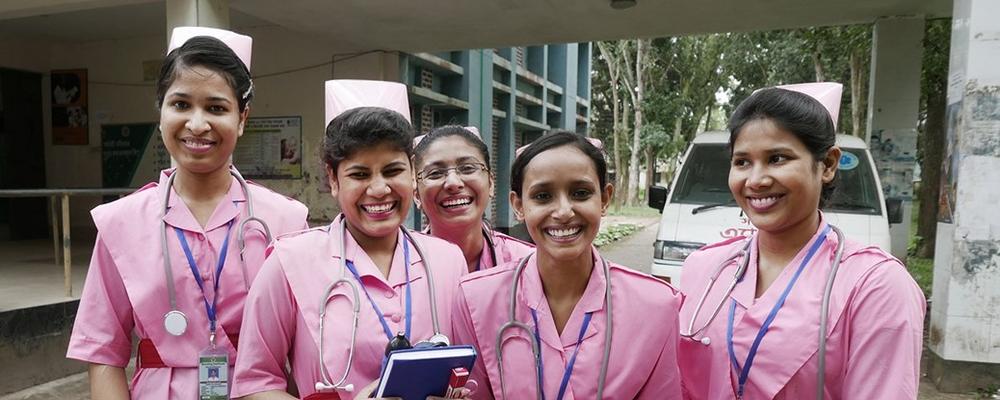The mission is to strengthen the national midwifery education in Bangladesh by raising the quality of education and supporting long-term investments in midwifery education. The project will ensure that the standard of all 147 educations in both the public and private sector is of high quality.
The University of Gothenburg will collaborate with the government, authorities, educational institutions and civil society organizations in Bangladesh to develop and implement a standardized accreditation process for all midwifery training in the country. The project will also contribute to meeting the UN's Sustainable Development Goals, specifically Goal 3: Good Health and Well-Being, Goal 4: Good Education for All, and Goal 17: Partnerships to Achieve the Goals.
A dangerous reality for pregnant women
Bangladesh is one of the world's most populous countries and still has a high maternal mortality rate of 173 deaths per 100,000 live births. This is a dangerous reality for pregnant women. Midwives are critical to improving sexual and reproductive health and reducing maternal and newborn mortality, but the lack of education and quality of education is a major challenge in Bangladesh and many other countries in Southeast Asia.
The new project is an important step towards addressing this challenge by helping to improve the health and quality of life of women and newborns and their families in Bangladesh.
Previous research has shown major shortcomings
Malin Bogren, Associate Professor and responsible for the project, has worked as an expert midwife for UNFPA and has been involved in the development of midwifery education in Bangladesh since 2007. In her previous research, together with researchers from Dalarna University and Bangladesh, she has developed and tested a tool to assess the quality of midwifery education in Bangladesh
Using the expertise and experience of the research team, this project will work to raise the standard of midwifery education and ensure that all students have the necessary skills to provide safe and secure care during pregnancy and childbirth.
The goal is to create a sustainable accreditation process. If factors that affect the quality of midwifery training are not understood, there is a risk that midwives will be trained without the necessary skills to save the lives of women and newborns.
- By implementing and studying the effectiveness of accreditation to increase the quality of midwifery education, this research project will contribute to improved health of mothers, newborns and families in low-income countries. The results will be used to develop and introduce accreditation systems in Southeast Asia, says responsible researcher Malin Bogren.
- We are proud to participate in this important project, continues Malin Bogren. It is a step forward in the work to improve the health of women and newborn children in Bangladesh and we are happy to be able to contribute to this positive development.
-------------------------------------------------------------------
More about the mission
In the 5.2 million that the Department of Nursing Sciences and Health will receive in the years 2023-2026, the following tasks will be included:
- To identify factors influencing the quality of midwifery education in Bangladesh
- Develop a standardized quality assurance process
- Train teachers and government personnel in performing quality assurance at the country's higher education institutions
- Ensure the quality of all the country's universities that train midwives
- Develop strategies to improve improvement measures, implement these and follow up on these activities
- Mentorship to the midwifery teachers in how the quality of the higher education institutions can be maintained

